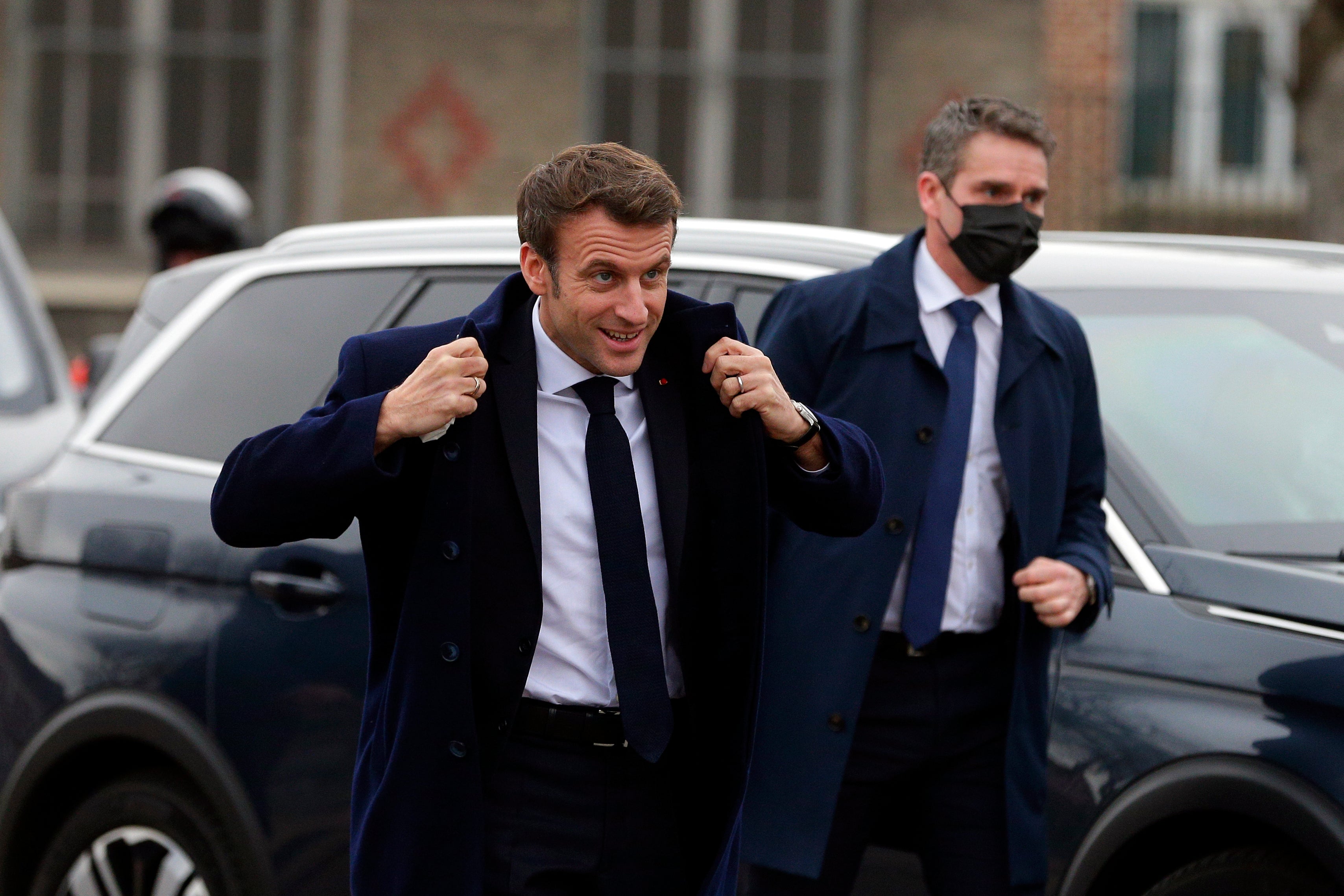Macron takes aim at migration with eye on French election
French President Emmanuel Macron is pushing to strengthen the European Union’s external borders against migrants illegally entering the bloc’s passport-free area

Your support helps us to tell the story
From reproductive rights to climate change to Big Tech, The Independent is on the ground when the story is developing. Whether it's investigating the financials of Elon Musk's pro-Trump PAC or producing our latest documentary, 'The A Word', which shines a light on the American women fighting for reproductive rights, we know how important it is to parse out the facts from the messaging.
At such a critical moment in US history, we need reporters on the ground. Your donation allows us to keep sending journalists to speak to both sides of the story.
The Independent is trusted by Americans across the entire political spectrum. And unlike many other quality news outlets, we choose not to lock Americans out of our reporting and analysis with paywalls. We believe quality journalism should be available to everyone, paid for by those who can afford it.
Your support makes all the difference.French President Emmanuel Macron is is taking aim at a core issue of the country's presidential campaign by pushing to strengthen the European Union's external borders against migrants illegally entering the bloc’s passport-free area.
Macron is expected to run for a second term in April’s election. Conservative and far-right candidates have made migration a priority issue, criticizing what they see the French president's inaction on stemming migration inflows.
“Our passport-free area (in Europe) is being threatened if we don’t know how to guard our external borders and monitor who is entering in,” Macron said in an interview to La Voix du Nord regional newspaper.
Macron is meeting with the bloc’s interior ministers in northern France on Wednesday evening, as the country currently holds the bloc's six-month rotating presidency. He is also meeting with local officials to discuss economic matters in the former mining region.
Macron wants the creation of a “rapid reaction force” to help protect EU states' borders in case of a a migrant surge and is also pushing for a rethink of the bloc's asylum application process
EU leaders agree changes in migrants’ policies are needed, but disagree on how to go about it.
The arrival in 2015 of well over one million people, many of them refugees fleeing war in Syria, sparked one of the EU’s biggest political crises. Greece was overwhelmed by tens of thousands of people landing in its islands on rafts and dinghies from Turkey. But other EU countries refused to lodge the refugees.
In December, the EU's executive arm announced an overhaul of the rule book governing free movement in Europe amid accusations that Belarus President Alexander Lukashenko was exploiting migrants in a “hybrid attack” by offering them passage to the borders of Latvia, Lithuania and Poland.
Macron also said he wants the EU to be more “efficient” in deporting those refused entry.
The French president is also looking to reduce the number of visas issued to EU states that are reluctant to take back migrants. On average, only around 40% of people refused entry to the bloc are ever actually sent home.
At home, Macron has been under harsh criticism from political rivals over migration policies, especially after the sinking of a boat led to the death of at least 27 migrants in the English Channel in November.
Far-right presidential candidate Eric Zemmour last month visited the northern town of Calais, where migrants gather in makeshift camps as they try to reach Britain. Zemmour said migrants are dying at sea "because we’re not tough enough with them. If we had tell them ... you won’t come to France, you will be deported as soon as you arrive, they would not be dead.”
A record-high 52,000 people tried to cross the English Channel last year, with more than half making it to Britain, according to the French interior ministry preliminary figures.
The other far-right candidate, Marine Le Pen travelled last month to the border area between France and Spain in the Pyrenees mountains used as a entry route by migrants coming from Africa. She called for re-establishing national border controls to better fight illegal immigration.
Conservative contender Valerie Pécresse recently made a campaign trip to Greece to visit a camp for asylum seekers who want to enter Europe from Turkey. She stressed the need for strong European borders.
“It is not at all fortress Europe, but it is not a supermarket Europe either.... There are doors and you must go through the door, and for me, that is my European model,” she said.
Zemmour, Le Pen and Pécresse are considered Macron's main challengers in the presidential election to be held on April 10 and April 24, according to polls.
____
AP Writer Lorne Cook contributed from Brussels.